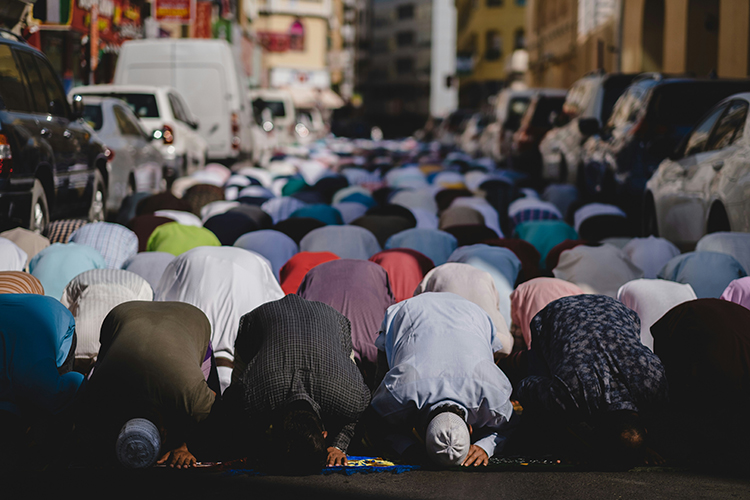
Islam, one of the world’s major religions, is built upon a set of fundamental beliefs and practices known as the Five Pillars. These pillars serve as the cornerstone of a Muslim’s faith, guiding their daily life and spiritual journey. In this blog, we delve into each pillar, exploring its significance and how it shapes the lives of millions worldwide.
Shahada (Faith)
The first pillar of Islam is Shahada, the declaration of faith. It encapsulates the belief in the oneness of Allah and the prophethood of Muhammad (peace be upon him). Muslims recite the Shahada to affirm their commitment to Islam, stating, ‘There is no god but Allah, and Muhammad is the Messenger of Allah’. This simple yet profound declaration underscores the monotheistic nature of Islam and the central role of the Prophet Muhammad as the final messenger.
Salah (Prayer)
Salah, or prayer, is the second pillar of Islam and serves as a direct connection between the individual and Allah. Muslims are required to perform five daily prayers at prescribed times: Fajr (dawn), Dhuhr (noon), Asr (afternoon), Maghrib (sunset), and Isha (night). Through these ritual prayers, Muslims express gratitude, seek guidance, and find solace in their Creator. Salah fosters discipline, mindfulness, and spiritual rejuvenation, reminding believers of their duty to maintain a constant connection with Allah amidst life’s distractions.
Zakat (Charity)
Zakat, the third pillar of Islam, emphasises the importance of social responsibility and economic justice. It requires Muslims to give a portion of their wealth to those in need, typically 2.5% of their savings annually. Zakat serves as a means of purifying one’s wealth and redistributing resources to support the less fortunate members of society. By fulfilling this obligation, Muslims demonstrate compassion, solidarity, and commitment to alleviating poverty and inequality within their communities.
In Islam, believers are encouraged to donate to Sadaqah Jariyah, which refers to ongoing charity that continues to benefit others in perpetuity.
Sawm (Fasting)
Sawm, known as fasting, is observed during the month of Ramadan and stands as the fourth pillar of Islam. Muslims refrain from food, drink, and other physical desires from dawn until sunset throughout the lunar month of Ramadan. Fasting isn’t just a test of self-discipline but also a spiritual journey marked by increased devotion, reflection, and empathy for the less fortunate. It fosters humility, gratitude, and a deeper connection to Allah, as believers strive to purify their hearts and attain spiritual growth through acts of worship and self-restraint.
Hajj (Pilgrimage)
Hajj, the fifth pillar of Islam, entails a pilgrimage to the sacred city of Mecca, which is obligatory for every physically and financially capable Muslim to undertake at least once in their lifetime. The annual pilgrimage occurs during the Islamic month of Dhu al-Hijjah and serves as a profound spiritual journey, symbolising unity, equality, and submission to Allah.
Through rituals such as Tawaf (circumambulation of the Kaaba) and Wuquf (standing at Mount Arafat), pilgrims experience a sense of communal worship, forgiveness, and renewal of faith, transcending cultural and geographical boundaries.
Conclusion
The Five Pillars of Islam form the framework upon which Muslim faith and practice are built. From the declaration of faith to acts of worship, charity, fasting, and pilgrimage, these pillars guide believers in their pursuit of spiritual fulfilment, moral conduct, and social justice.
By adhering to these principles, Muslims strive to embody the values of Islam and cultivate a meaningful relationship with Allah, enriching their lives and communities in the process.
related post

Leave a Reply